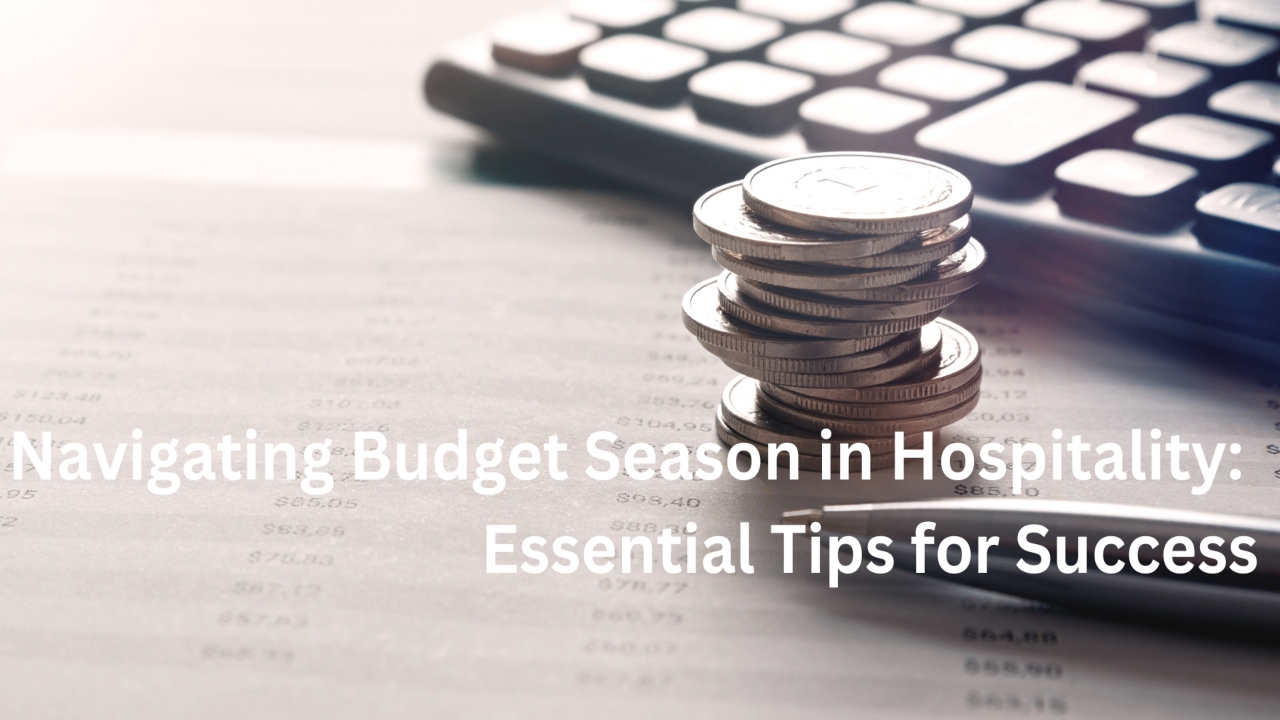Navigating Budget Season in Hospitality: Essential Tips for Success
As we enter the final third of 2024, hospitality businesses are preparing for one of the most crucial periods in their financial planning—budget season.
This time of year is more than just about balancing books and setting targets; it’s an opportunity to align financial goals with market realities, ensure sustainability, and set the stage for future growth. Crafting a successful budget requires a combination of market research, strategic storytelling, effective communication, and the ability to adapt to feedback.
Here’s our guide to help businesses navigate the complexities of budget season with confidence and precision.
Market Research and Forecasting
A solid budget begins with a deep understanding of the market and future forecasts. In an industry where trends can shift rapidly due to economic changes, consumer behaviour, and global events, staying informed is essential. The hospitality sector is anticipated to grow at a rate of 5.5% over the next four years, driven by factors like sustainability, wellness tourism, and flexible bookings. Understanding these trends allows businesses to tailor their budgets to meet market demands, such as investing in sustainable practices or wellness amenities.
Analysing Past Performance
Before looking ahead, it’s crucial to review past financial performances. Analysing year-over-year changes, identifying trends in different market segments, and assessing profit and loss can provide valuable insights. This data helps set realistic goals for the upcoming year and pinpoint areas needing increased investment or cost-cutting.
Competitive Landscape
Understanding the competitive landscape is equally important. Analysing competitors’ strategies, pricing models, and market positioning can reveal opportunities and threats. This intelligence should be integrated into the budget to maintain competitiveness.
Crafting a Strategic Narrative
A budget isn’t just a collection of numbers; it tells the story of the business’s past, present, and future. Crafting a narrative from these figures that resonates with stakeholders is key to aligning the budget with the company’s strategic objectives. Highlight successes, such as revenue increases from a new marketing strategy, and address challenges with clear plans for improvement. Align the budget with broader company goals, such as market expansion or sustainability initiatives, to ensure it drives the business forward.
Presenting to Senior Leadership
Once the budget is crafted, presenting it to senior leadership is the next critical step and the approval of the budget often hinges on how well it’s communicated. This presentation should be concise and well-structured, focusing on key messages and high-level summaries. Senior leaders don’t have time to delve into the details, so it’s essential to highlight the most critical data points and how they align with the company’s strategic goals. Use visuals like charts and graphs to make complex information more accessible and engaging.
Handling Feedback
Receiving and incorporating feedback is a vital part of the budgeting process. Be prepared to answer questions and justify every figure. Feedback should be viewed as an opportunity to refine the budget, demonstrating responsiveness and a commitment to the business’s success. Document all feedback and changes made, as this record can be invaluable for future budget planning.
Team Engagement
Budgeting isn’t just a top-down process; it involves the entire team. Engaging with team members ensures the budget reflects operational realities and builds a sense of ownership. Department heads can provide insights into specific needs or challenges, making the budget more realistic and achievable. Ensure everyone understands their role in the budget and how it aligns with the broader goals of the business. Providing training and support, such as financial literacy workshops, can enhance the overall quality of the budget.
Conclusion
Budget season in the hospitality industry is more than a financial exercise; it’s a strategic process that sets the tone for the year ahead. By conducting thorough market research, crafting a compelling narrative, presenting effectively, and engaging with your team, you can create a budget that not only meets operational needs but also drives growth and innovation. As the industry evolves, those who approach budget season with diligence and foresight will be well-positioned to thrive. Embrace the challenge, and let budget season be a stepping stone to your business’s success.
FM Recruitment is part of Hospitality People Group and we are dedicated to exploring all opportunities to provide insights and support our clients and their people strategies to create lasting value and positive experiences for their employees and guests.
If you would like to discuss your people strategy further, then please get in touch.
Chris Denison Smith, Managing Director – FM Recruitment
+44 20 8 600 1160 / +44 7775 711923
chrisdenisonsmith@fmrecruitment.co.uk
Andrea Shaw, Director – FM Recruitment
+44 20 8 600 1160 / +44 7714 236469
andreashaw@fmrecruitment.co.uk
Dan Akhtar, Managing Director – HPG Advisory Services
+44 208 600 1166 / +44 7808 157796
dan@hpgsearch.com
Guy Lean, Managing Director – Madison Mayfair
+44 20 8 600 1180 / +44 7813 009787
guylean@madisonmayfair.com
